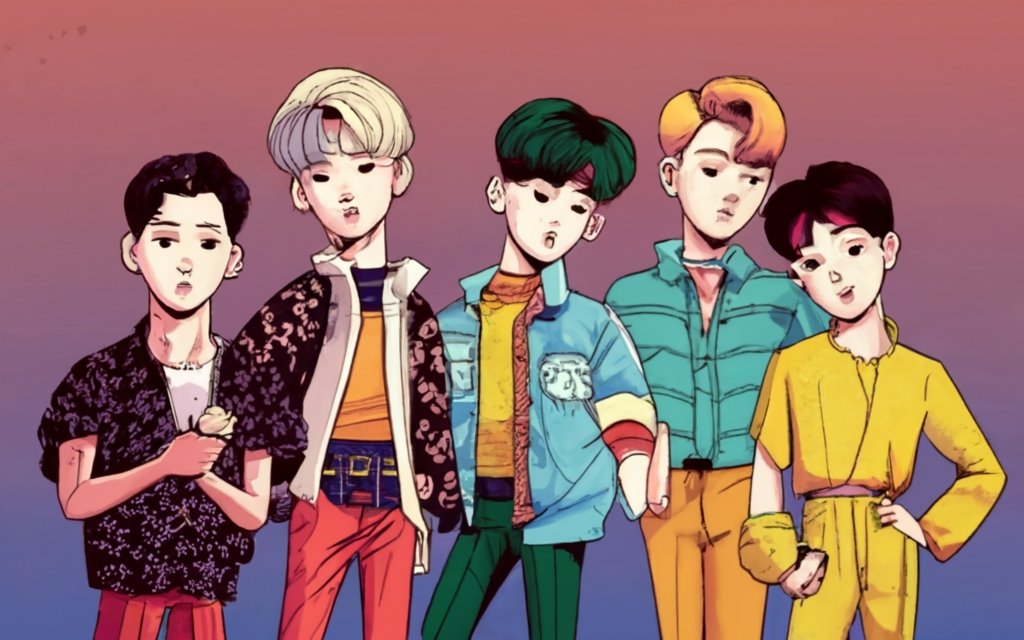How K-pop is Rewriting the Rulebook of Global Fashion

In a world where fashion trends are fleeting, K-pop has become the compass directing global youth’s sartorial choices. Impeccably styled K-pop idols set these trends. Their impact is a seismic shift in fashion consumption and production, felt from Seoul’s Gangnam district to New York’s Fifth Avenue. While K-pop’s musical influence has been years in the making, its fashion impact has crescendoed in 2023. The genre’s blend of music, aesthetics, and personal branding has struck a chord, thanks to savvy social media use, strategic brand partnerships, and an embrace of individuality.
The K-pop Effect
“K-pop is a global phenomenon that has redefined fashion,” says Dr. Min-Jung Kim, a professor of Fashion Studies at Seoul National University. “Artists like BTS and Blackpink are fashion icons. They’ve mainstreamed androgynous clothing and spotlighted Korean designers.”
In 2023, keywords like “Paris Fashion Week,” “Blackpink,” and “Lisa” dominated fashion discussions. Brands collaborate with these artists for their trendsetting abilities. A single Instagram post from a K-pop idol can send fans into a shopping frenzy, often crashing websites and clearing out inventories.
This influence extends beyond clothing. Accessories, makeup, and hairstyles are meticulously dissected and replicated by fans. This has led to a surge in demand for Korean beauty products, gender-neutral accessories, and specific fabric types. Western brands are incorporating Korean-inspired designs into their collections.
Fast Fashion Meets Conscious Consumerism
“The speed at which these trends change can perpetuate fast fashion, leading to environmental degradation,” warns an anonymous industry expert. “K-pop idols promote self-expression and individuality, but their influence can drive unsustainable consumer behavior.”
While there were 53 million online mentions relating to sustainability and fashion in 2022, the K-pop industry seems isolated. Fans quickly emulate their favorite idols, often seeking affordable knock-offs, contributing to the fast fashion problem. Can K-pop’s influence be channeled for greater sustainability?
This paradox is complicated by the idols themselves, who often wear high-end designer outfits. While these idols may advocate for social causes, including environmental sustainability, their fashion choices sometimes tell a different story. Brands criticized for unsustainable practices continue to find a platform through these influential figures.
Data-Driven Fashion
“Brands use sophisticated algorithms to analyze the fashion choices of K-pop idols and their fans,” Dr. Min-Jung Kim elaborates. “This data predicts future trends, stock inventories, and influences fashion design.”
In a world driven by data, the fashion choices inspired by K-pop are calculated. They result from meticulous analysis, strategic marketing, and an understanding of consumer behavior. The K-pop industry is a goldmine of data, with fan forums, social media posts, and online discussions providing invaluable consumer insights.
The role of data analytics extends to real-time trend prediction and inventory management. Brands can anticipate which items will sell out and prepare accordingly, minimizing waste and maximizing profit. This data-driven approach is revolutionizing not just fashion marketing but also its creation. Designers use these insights to create collections that resonate with their target audience, making the fashion cycle more efficient but also raising ethical questions about creativity and originality in design.
The Double-Edged Sword of Influence
K-pop stands as a double-edged sword in the fashion world of 2023. “It has democratized fashion, making it accessible and relatable to millions,” says Dr. Min-Jung Kim. “However, the industry needs to be mindful of the ethical implications of its influence. Sustainability should not be a trend but a cornerstone of fashion.”
K-pop’s influence on global fashion is both a boon and a bane. It has shattered traditional norms, encouraged self-expression, and brought a sense of global unity through style. Yet, it also raises critical questions about sustainability, ethical consumption, and the role of data in shaping not just what we listen to but what we wear. As the world watches this cultural phenomenon continue to unfold, one thing is clear: K-pop has not just rewritten the rulebook of global fashion; it has thrown it out the window.
The industry stands at a crossroads, with the power to either uplift or undermine the values it purports to represent. The choices made today will shape the fashion landscape for years to come, making it imperative for both idols and fans to wield their influence responsibly. As Dr. Min-Jung Kim aptly concludes, “The world is watching, and it’s time for the fashion industry to step up and make choices that are not just trendy but also ethical and sustainable.”